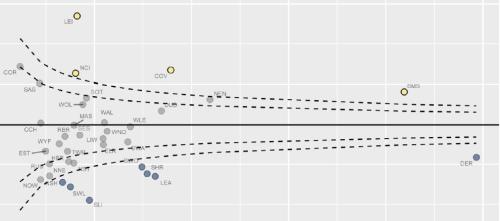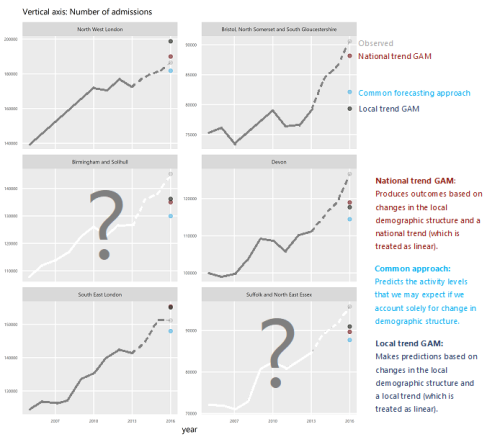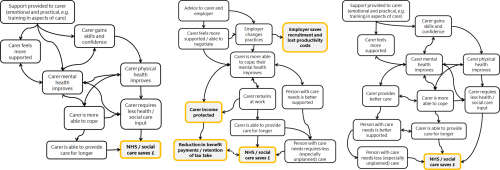 Elective care | Finance and payments | Inequalities
Elective care | Finance and payments | Inequalities
Equity and Cost Growth in Specialised Services
NHS specialised services provide care for people with complex or rare medical conditions. Treatments for these conditions are often expensive: While specialised services support a small proportion of the population, approximately one-sixth of the total NHS budget - over £19 billon - was allocated…
Outcomes based commissioning: A framework for local decision making
This local decision-making framework aims to empower systems as they look to design new contracting approaches aimed at improving outcomes.
 Elective care | Emergency care | Finance and payments | Policy | Primary, community and social care services
Elective care | Emergency care | Finance and payments | Policy | Primary, community and social care services
How will we know if Integrated Care Systems reduce demand for urgent care?
The implications of a blended payment system are far reaching: Decisions about planned activity levels will determine the total funding envelope for urgent care within a system and will influence the behaviour of healthcare providers and the services they deliver to patients.
Risk and Reward Sharing for NHS Integrated Care Systems
Risk and reward sharing is a simple and attractive concept, offering a commissioner the opportunity to co-opt and incentivise a provider to moderate growth in healthcare demand by sharing in the savings or cost over-runs. The Centers for Medicare and Medicaid Services (CMS), a US government…
 Service configuration | Service improvement | Integrated Care
Service configuration | Service improvement | Integrated Care
Scoping study: the economics of caring
There is a clear moral case for supporting unpaid carers. They play an essential role in the lives of the people they care for; they often do so at a cost to their own wellbeing. But what is the economic case for supporting carers? And to what extent does the evidence base support this case?…
Identifying Potential QIPP Opportunities - Dudley Example
Given the pressures within the NHS, being able to identify opportunities for efficiencies and improvements is vital to inform commissioning intentions. This report is an example of analytical work which to support commissioners. The objective of this report is to provide information to…